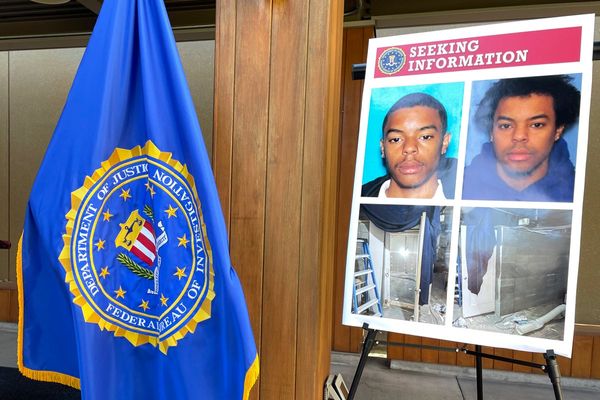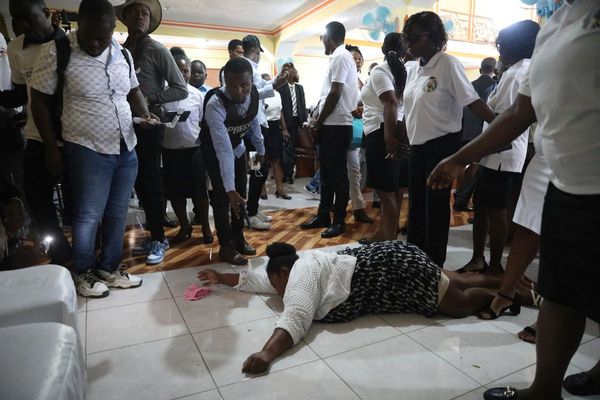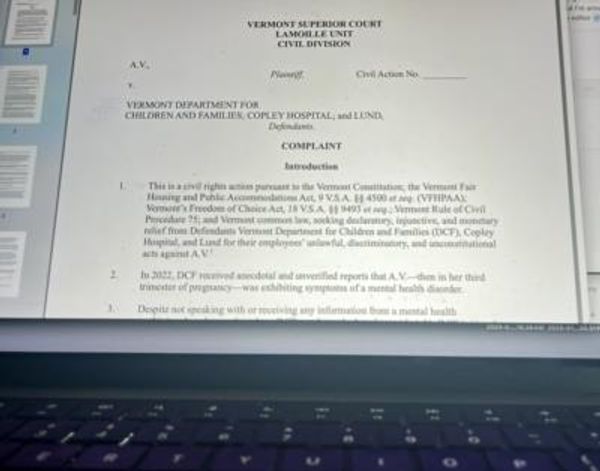
Juba (AFP) - Pope Francis on Saturday urged South Sudan's leaders to restore "dignity" to the millions of their countrymen affected by conflict, renewing a forceful appeal for peace in the strife-torn nation.
On the second day of his visit to South Sudan, a nation that has been at war for around half its existence, Francis heard from children who have spent much of their lives on the run from violence.
The 86-year-old pontiff has been pushing South Sudan's leaders to heal divisions for the sake of a nation traumatised by the legacy of a five-year civil war that left 380,000 people dead.
A ceasefire was struck, but peace has eluded the world's newest nation, and Francis, who tried to broker peace between the rival parties, finds South Sudan beset with violence and despair.
On Saturday, Francis told a gathering in Juba of hundreds of people displaced by conflict that they deserved a better future.
"Sadly, in this war-torn country, being a displaced person or a refugee has become a common and collective experience," he said.
"I want to renew my forceful and heartfelt appeal to end all conflict and to resume the peace process in a serious way, so that violence can end and people can return to living in dignity."
There are 2.2 million internally displaced people (IDPs) living in South Sudan, and another two million outside the country.
It is the worst refugee crisis in Africa.
Those displaced in South Sudan live in overcrowded, squalid and underfunded camps under the protection of the United Nations, too fearful to venture out, or with nowhere left to return.
'No room for delay'
Francis said there was "no room for further delay" in achieving peace for all in South Sudan, with children being born every day in these camps.
"They have no memory of what it means to have a home; they are losing their connection with their native land, their roots and their traditions," he said, describing them as "the seed of a new South Sudan".
"The future cannot lie in refugee camps," he said to applause.
John Wiyual, who has lived at a sprawling IDP camp outside Juba since 2014, said he did not trust government assurances that the country was safe.
"They say there is peace -- but there is killing in all states," the 42-year-old told AFP.
"The pope can listen to us.We are citizens, and we need peace."
Around 50,000 people turned up for a joint prayer on Saturday evening by Francis, the Archbishop of Canterbury and the Moderator of the General Assembly of the Church of Scotland, who are also on the trip.
The pope will wrap up his trip on Sunday with a mass expected to be joined by thousands of people at the John Garang mausoleum -- built in honour of South Sudan's rebel hero who died in 2005.
At his first event Saturday, the wheelchair-bound pope met South Sudan's religious leaders, who work with the poor and marginalised and are deeply respected in the devout country where 60 percent of its 12 million people are Christian.
Thousands turned out early to wait for the pope in the courtyard of the Cathedral of Saint Therese, many waving flags and ululating as they gave him a jubilant welcome.
"It is the first time to see papa in my country.I feel so privileged," said 36-year-old Adongpiny Harriet, wiping away sweat after she joined an impromptu dance following the pope's blessing.
'A new start'
On Friday, Francis delivered a pointed speech to South Sudan's political leaders, warning they must make "a new start" toward reconciliation and end the greed and power struggles tearing the nation apart.
"Future generations will either venerate your names or cancel their memory, based on what you now do," he told an audience that included President Salva Kiir and his rival and deputy Riek Machar, as well as diplomats, religious leaders and traditional kings.
"No more bloodshed, no more conflicts, no more violence."
The pope promised in 2019 to travel to South Sudan, when he hosted Kiir and Machar at a Vatican retreat and asked them to respect a hard-fought ceasefire for their people.
In scenes that reverberated in South Sudan, Francis knelt and kissed the feet of two foes whose personal armies had been accused of horrific war crimes.
But four years later, the country remains mired in intractable conflict.
Human rights groups have urged Francis to press South Sudan's leaders to address widespread impunity for war-era abuses and deliver justice for victims.
The pope's stop in South Sudan follows a visit to the Democratic Republic of Congo, another resource-rich country plagued by persistent conflict and also often overlooked by the world.
The visit -- Francis's fifth to Africa -- was initially scheduled for 2022 but had to be postponed because of problems with the pope's knee.







